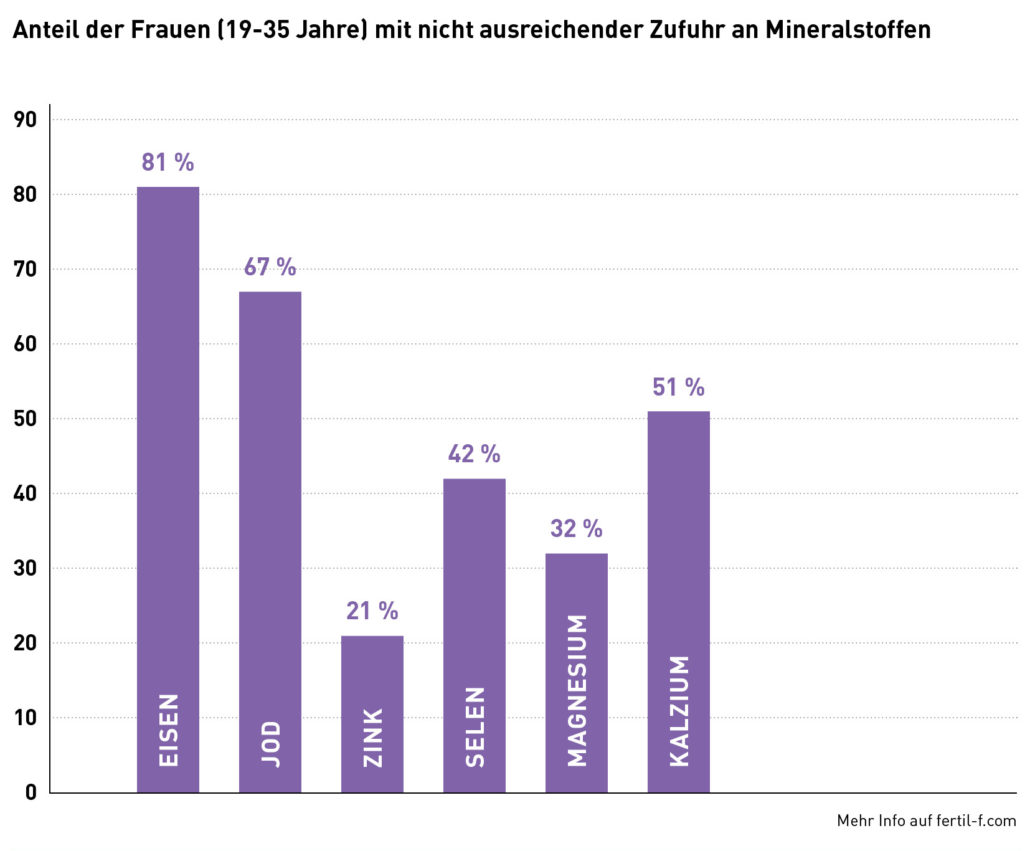Expectant mothers need more iodine – right from the start of pregnancy.
The daily supply of the essential trace element is used both for the mother’s own production of thyroid hormones and for the growing fetus, which is dependent on the mother’s iodine supply.
The child’s thyroid gland begins to work independently as early as the 14th week of pregnancy.
The hormone production required for this starts around the 12th week of pregnancy.
What functions does iodine have?
Iodine is an essential building block of the thyroid hormone called tetraiodothyronine or thyroxine (T3 for short), which is produced in the thyroid gland and controls the speed of metabolism, among other things.
The trace element is also involved in controlling the growth, bone formation and brain development of the growing baby in the womb.
A sufficient supply of iodine can reduce the risk of developmental disorders, malformations and miscarriages.
What is the daily requirement for iodine?
The minimum recommended daily intake (NRV, nutritional reference value) of iodine is 150 µg (micrograms).
The recommendations of the DGE(German Nutrition Society) are between 180 µg and 200 µg.
For pregnant women, the DGE e.V. recommends 230 µg of iodine, and 260 µg during breastfeeding.
How good is the general supply of iodine?
In 2008, the Max Rubner Institute carried out a detailed study into the diet and nutrition of Germans.
The eating habits of over 20,000 people were included in this study.
According to the study, large sections of the population consume too much sugar and flour, but not enough vitamins and trace elements.
With regard to iodine, this National Nutrition Survey (NVS, results report part 2) revealed that 74% of the women aged 19-24 surveyed had an iodine deficiency, even though they already consume iodized salt.
In the 25 to 34 age group, 60.9% have an insufficient iodine intake and in the 35 to 50 age group, over half are affected by iodine deficiency.
If iodized table salt is not used for cooking, between 99.1% and 97.4% of women aged 19 to 50 do not meet their minimum daily iodine requirement through their normal diet.
How can you meet your daily iodine requirement, especially during pregnancy?
The Iodine Deficiency Working Group and professional associations recommend taking 150 to 200 micrograms of iodine in tablet form every day from the beginning of pregnancy, as the increased need for iodine is difficult to meet through normal nutrition. Added to this is the fact that expectant mothers need even more iodine – the proven iodine deficiency would be correspondingly higher.“The demand for iodine deficiency prophylaxis in Germany applies in particular to women during pregnancy and breastfeeding,” says the Federal Health Office.
Like the Federal Institute for Consumer Health Protection, it recommends the following measures:
1. exclusive use of iodized table salt or iodized table salt substitutes in the household.
2. preference for foods produced using iodized table salt, especially bread and meat products.
3. regular consumption of sea fish.
This is because sea fish is both a good natural source of iodine and a supplier of the important omega-3 fatty acids DHA and EPA.
Milk also contains iodine.
4. additional daily intake of 150 to 200 µg – e.g. in the form of food supplements adapted to pregnancy requirements.
Conclusion on iodine during pregnancy and breastfeeding
Iodine deficiency is widespread even when iodized table salt is used.
Especially during pregnancy and breastfeeding, an additional supply is important for the healthy development of the child and the hormone balance.
A dietary supplement with 150 µg to 200 µg iodine (e.g. amitamin® fertil F) can therefore make a valuable contribution to a healthy pregnancy.
This post is also available in: French German Italian Spanish Portuguese (Portugal) Dutch Swedish Arabic Turkish Bosnian
















